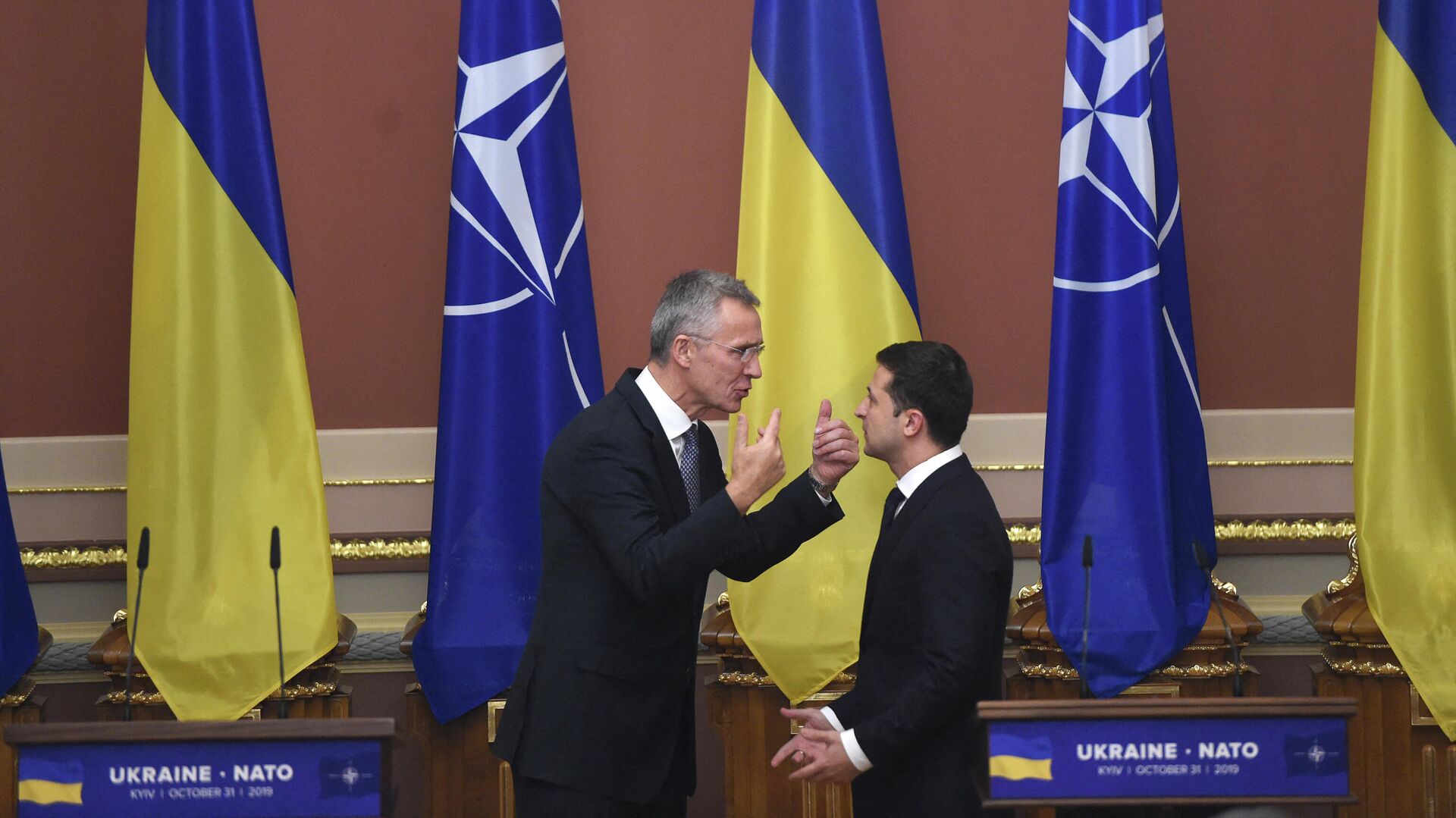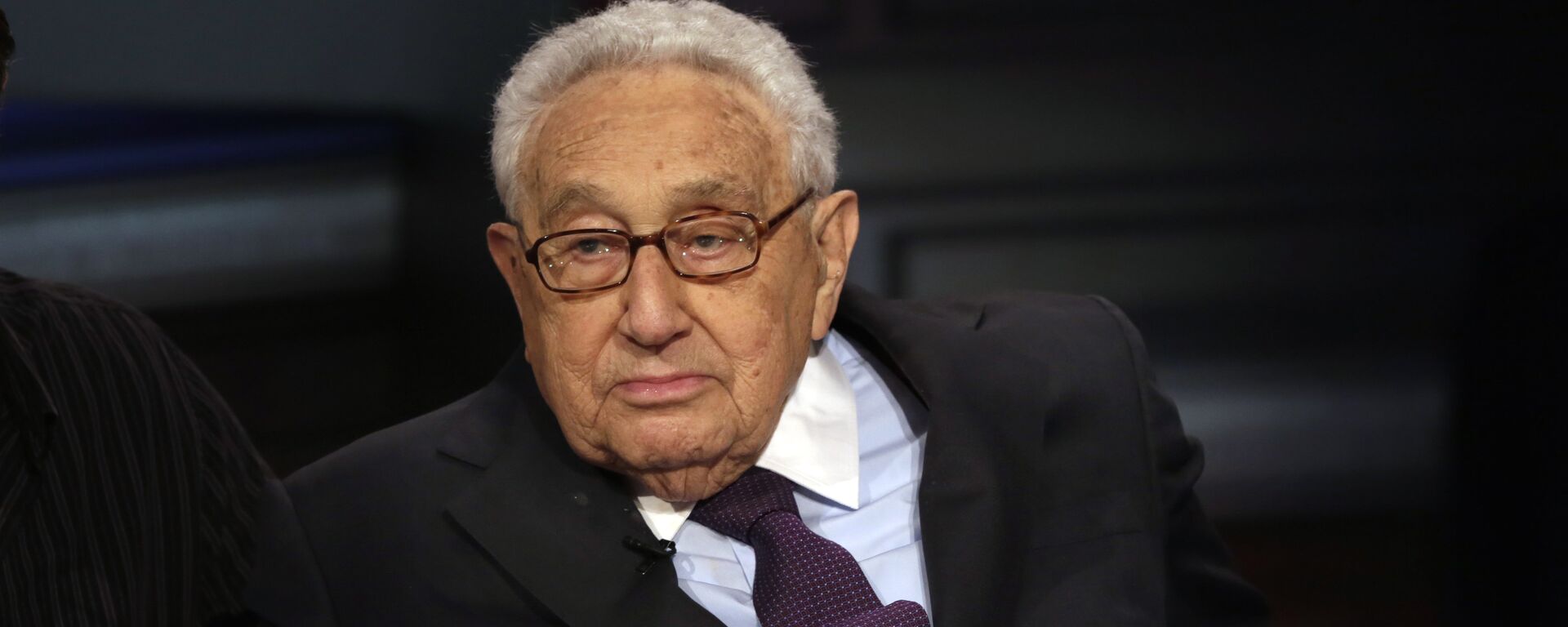https://sputnikglobe.com/20220525/ukraines-foreign-minister-slams-hypocritical-nato-for-doing-literally-nothing-to-counter-russia-1095777227.html
Ukraine’s Foreign Minister Slams ‘Hypocritical’ NATO for ‘Doing Literally Nothing’ to Counter Russia
Ukraine’s Foreign Minister Slams ‘Hypocritical’ NATO for ‘Doing Literally Nothing’ to Counter Russia
Sputnik International
NATO countries have pledged tens of billions of dollars’ worth of support to Ukraine in recent months, including a $40 billion package signed by President Joe... 25.05.2022, Sputnik International
2022-05-25T18:22+0000
2022-05-25T18:22+0000
2022-05-25T18:36+0000
ukraine
nato
dmytro kuleba
https://cdn1.img.sputnikglobe.com/img/07e5/0c/10/1091567690_0:317:3076:2047_1920x0_80_0_0_b97764c87e048874ee353d3715cf0168.jpg
The NATO alliance has done “literally nothing” to help Ukraine in its time of need, unlike the European Union, Foreign Minister Dmytro Kuleba has said.“My people criticize me for saying that NATO did nothing since the beginning of the war, my experts, my NATO experts. They say I have to be more constructive. But I am constructive. We see allies helping Ukraine out, we see a group of NATO allies helping us. But in the beginning of the war the people of Ukraine, it was a public sentiment, they believed that NATO is this strong force and the EU is only capable of expressing various levels of concern, and that’s it. But the war is always a test that rips masks off and we all saw real faces”, Kuleba said, speaking at the World Economic Forum in Davos, Switzerland on Wednesday.Kuleba complained that unlike Ukraine, Finland and Sweden’s application for NATO membership has not been accompanied by the same level of scrutiny about strategic stability in relations between Russia and the West. “So there is an element of hypocrisy in this, I understand it, this is life”, he said.Characterising Ukraine’s Army as having demonstrated itself as being the “strongest” in Europe, Kuleba called on the West to “kill Russian exports” and “make Russia pay” for challenging the Western-dominated “rules-based order”, and urged Washington and its allies to send more weapons, including multiple launch rocket systems, and more economic support.NATO first expressed support for Ukraine’s “aspirations to join” the Western bloc at its Bucharest Summit in 2008. Russia spent the next decade-and-a-half warning that the alliance’s continued eastward expansion would threaten its core security interests.In January 2022, NATO formally rejected a set of twin draft security agreements proposed by Moscow aimed at easing tensions, stressing that the alliance’s open-door policy was not up for negotiation. The same month, NATO chief Jens Stoltenberg told an Italian newspaper that Ukraine’s entry into the alliance was a done deal, and only a matter of time.Ukrainian officials have repeatedly expressed hopes that Kiev could still join the Western bloc after vanquishing Russia in the current conflict. However, in March, President Volodymyr Zelensky said he had “cooled down” on the idea of Kiev’s membership in NATO because he didn’t want to be the leader of a country “that is begging for something on its knees”.
https://sputnikglobe.com/20220523/ukraine-should-ideally-become-neutral-state-ex-us-secretary-of-state-kissinger-says--1095721779.html
ukraine
Sputnik International
feedback@sputniknews.com
+74956456601
MIA „Rossiya Segodnya“
2022
News
en_EN
Sputnik International
feedback@sputniknews.com
+74956456601
MIA „Rossiya Segodnya“
Sputnik International
feedback@sputniknews.com
+74956456601
MIA „Rossiya Segodnya“
ukraine, nato, dmytro kuleba
ukraine, nato, dmytro kuleba
Ukraine’s Foreign Minister Slams ‘Hypocritical’ NATO for ‘Doing Literally Nothing’ to Counter Russia
18:22 GMT 25.05.2022 (Updated: 18:36 GMT 25.05.2022) NATO countries have pledged tens of billions of dollars’ worth of support to Ukraine in recent months, including a $40 billion package signed by President Joe Biden on Saturday which promises $6 billion for security assistance, $8.7 billion to replenish stocks of US arms already sent, and $3.9 billion for US European Command operations.
The NATO alliance has done “literally nothing” to help Ukraine in its time of need, unlike the European Union, Foreign Minister Dmytro Kuleba has said.
“My people criticize me for saying that NATO did nothing since the beginning of the war, my experts, my NATO experts. They say I have to be more constructive. But I am constructive. We see allies helping Ukraine out, we see a group of NATO allies helping us. But in the beginning of the war the people of Ukraine, it was a public sentiment, they believed that NATO is this strong force and the EU is only capable of expressing various levels of concern, and that’s it. But the war is always a test that rips masks off and we all saw real faces”, Kuleba
said, speaking at the World Economic Forum in Davos, Switzerland on Wednesday.
“What we saw are some revolutionary, ground-breaking decisions taken by the European Union, which even they themselves did not expect to make. And we see NATO as an alliance, as an institution, sidelined and doing literally nothing, I’m sorry to say”, the diplomat said.
Kuleba complained that unlike Ukraine, Finland and Sweden’s application for NATO membership has not been accompanied by the same level of scrutiny about strategic stability in relations between Russia and the West. “So there is an element of hypocrisy in this, I understand it, this is life”, he said.
Characterising Ukraine’s Army as having demonstrated itself as being the “strongest” in Europe, Kuleba called on the West to “kill Russian exports” and “make Russia pay” for challenging the Western-dominated “rules-based order”, and urged Washington and its allies to send more weapons, including multiple launch rocket systems, and more economic support.
“We appreciate the sanctions that have already been imposed. Some of them are especially helpful as they strategically undermine Russian stability or have already made it impossible for Russia to produce more modern weapons because of the sanctions. But as long as the EU continues to buy Russian oil and gas, [Vladimir] Putin’s pockets will be full”, Kuleba complained.
NATO first expressed support for Ukraine’s “aspirations to join” the Western bloc at its Bucharest Summit in 2008. Russia spent the next decade-and-a-half warning that the alliance’s continued eastward expansion would threaten its core security interests.
In January 2022, NATO formally rejected a set of twin draft security agreements proposed by Moscow aimed at easing tensions, stressing that the alliance’s open-door policy was not up for negotiation. The same month, NATO chief Jens Stoltenberg told an Italian newspaper that Ukraine’s entry into the alliance was
a done deal, and only a matter of time.
Ukrainian officials have repeatedly expressed hopes that Kiev could still join the Western bloc after vanquishing Russia in the current conflict. However, in March, President Volodymyr Zelensky said he had
“cooled down” on the idea of Kiev’s membership in NATO because he didn’t want to be the leader of a country “that is begging for something on its knees”.


